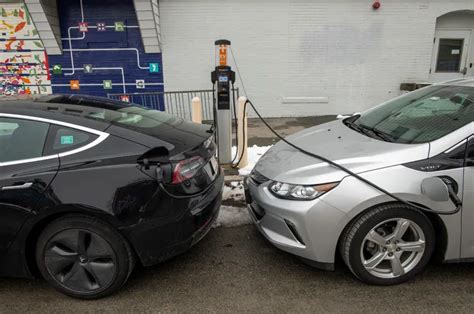In an ambitious move to combat climate change and promote sustainable transportation, Massachusetts has launched a new initiative aimed at encouraging the adoption of electric vehicles (EVs) across the state. The program introduces an attractive rebate for electric car buyers, making the transition to cleaner transportation more accessible and affordable. This article delves into the details of the rebate, its implications for consumers, and the broader impact on the environment and economy.
The Rebate Overview
The Massachusetts electric car rebate program offers a substantial financial incentive for residents looking to purchase a new electric vehicle. Buyers can now receive a rebate of up to $7,500, depending on the vehicle’s make and model, as well as the buyer’s income level. This initiative, part of the state’s broader effort to reduce greenhouse gas emissions, aims to make electric vehicles more financially viable for a larger segment of the population.
Incentives for All
The program is designed to cater to a diverse range of consumers. It encourages low- and middle-income families to switch to electric vehicles by providing additional rebates based on income level. This stratified approach ensures that those who may be most impacted by the initial costs of purchasing an EV receive the most assistance.
For instance, a lower-income family purchasing a qualified electric vehicle can benefit from the maximum rebate amount, alongside additional incentives offered by manufacturers and dealerships, potentially lowering the overall cost significantly. Furthermore, the program also applies to used electric vehicles, expanding access. Overall, this comprehensive framework promotes inclusivity and accessibility in transitioning to electric mobility.
The Environmental Impact
Electric vehicles are known for their positive impact on the environment. By replacing gasoline and diesel cars with EVs, Massachusetts aims to reduce harmful emissions significantly. This step is crucial for achieving the state’s ambitious climate goals, which include a 45% reduction in greenhouse gas emissions by 2030 and net-zero emissions by 2050.
The widespread adoption of electric vehicles can lead to improved air quality, especially in urban areas commonly rife with pollution. Additionally, reducing dependency on fossil fuels aligns with the global agenda to promote renewable energy sources.
Economic Effects
The electric vehicle rebate program not only benefits the environment but also has significant economic implications. By stimulating demand for electric vehicles, the program supports local dealerships, manufacturers, and the renewable energy sector, potentially creating new jobs.
Moreover, as more residents adopt electric vehicles, there will likely be increased investment in charging infrastructure across the state. This development is essential, as it alleviates range anxiety—the common concern among potential EV buyers about finding charging stations. Improved infrastructure will support the growing number of electric vehicles on the road, making Massachusetts a leader in sustainable transportation.
Challenges and Considerations
While the introduction of the rebate is undoubtedly a positive step, there are challenges that must be addressed to ensure the program’s success. Supply chain issues, especially post-pandemic, have affected the availability of electric vehicles. Consumers might face difficulties finding and purchasing eligible EVs.
Additionally, public awareness and education about the benefits of electric cars and the details of the rebate program are crucial. Massachusetts will need to invest in outreach to inform potential buyers about how to navigate the rebate process and the advantages of switching to electric vehicles.
Conclusion
Massachusetts’ generous rebate program for electric car buyers represents a significant step toward a sustainable future. By making electric vehicles more accessible and affordable, the state is not only addressing climate change but also fostering economic growth and job creation in the green technology sector. As we move forward, it will be essential to overcome existing challenges such as vehicle availability and public awareness. However, with continued efforts, Massachusetts can set a powerful example for other states and regions aiming to transition toward cleaner and more sustainable forms of transportation.
FAQs
1. Who is eligible for the electric vehicle rebate in Massachusetts?
Eligibility for the rebate generally includes residents of Massachusetts who purchase or lease an eligible electric vehicle. The rebate amount may vary based on income level and type of vehicle purchased.
2. How much is the rebate for electric vehicles?
The rebate can be as much as $7,500, depending on the vehicle’s make, model, and the buyer’s income level.
3. Can I receive additional incentives from dealerships or manufacturers?
Yes, many manufacturers and dealerships offer additional incentives for electric vehicle purchases, which can further reduce the overall cost.
4. Does the rebate apply to used electric vehicles?
Yes, the program also applies to used electric vehicles, helping to expand access to electric mobility for more consumers.
5. How can I find more information about eligible electric vehicles?
The Massachusetts government website provides a list of eligible electric vehicles and additional details on the rebate program.
This HTML content is structured and ready for WordPress, featuring headings, paragraphs, and sections for a comprehensive article about Massachusetts’ electric vehicle rebate program.
Download Massachusetts Rebate For Electric Cars
